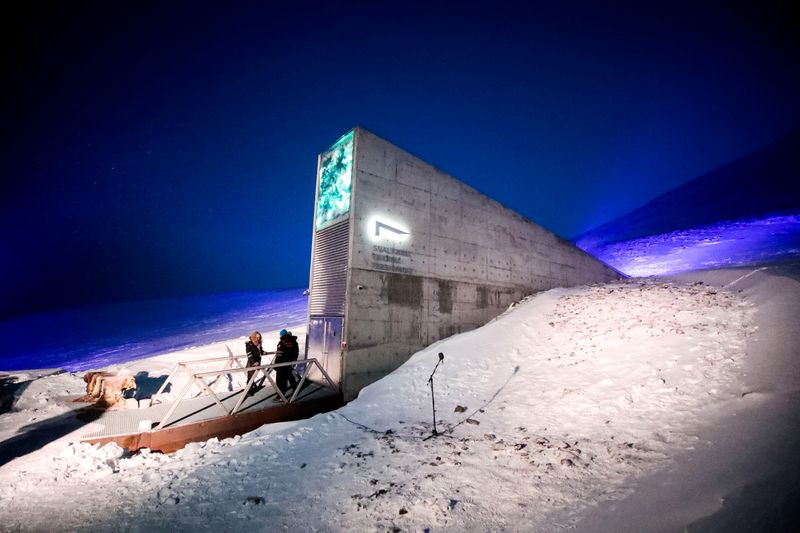COPENHAGEN (Reuters) – A “doomsday” vault storing food crop seeds from around the world in man-made caves on a remote Norwegian Arctic island will receive more than 14,000 new samples on Tuesday, a custodian of the facility said.
The Svalbard Global Seed Vault, set deep inside a mountain to withstand disasters from nuclear war to global warming, was launched in 2008 as a backup for the world’s gene banks that store the genetic code for thousands of plant species.
Protected by permafrost, the vault has received samples from across the world, and played a leading role between 2015 and 2019 in rebuilding seed collections damaged during the war in Syria.
Trusted news and daily delights, right in your inbox
See for yourself — The Yodel is the go-to source for daily news, entertainment and feel-good stories.
“The seeds deposited this week represent not just biodiversity, but also the knowledge, culture and resilience of the communities that steward them,” Executive Director Stefan Schmitz of the Crop Trust said in a statement.
The new contributions include a sample of 15 species from Sudan, consisting of several varieties of sorghum – a plant that is significant both for the country’s food security and its cultural heritage, the Crop Trust said.
The war between the Rapid Support Forces and the army which broke out in April 2023 has killed tens of thousands of people and displaced 12 million, while plunging half of Sudan into hunger and several locations into famine.
“In Sudan…these seeds represent hope,” the director of Sudan’s Agricultural Plant Genetic Resources Conservation and Research Centre said in a statement.
The total of 14,022 new samples will be deposited at 1430 GMT, including seeds of Nordic tree species from Sweden and rice from Thailand, the Crop Trust said.
(Reporting by Louise Rasmussen and Anna Ringstrom, editing by Terje Solsvik and Christina Fincher)
Read the full article here


